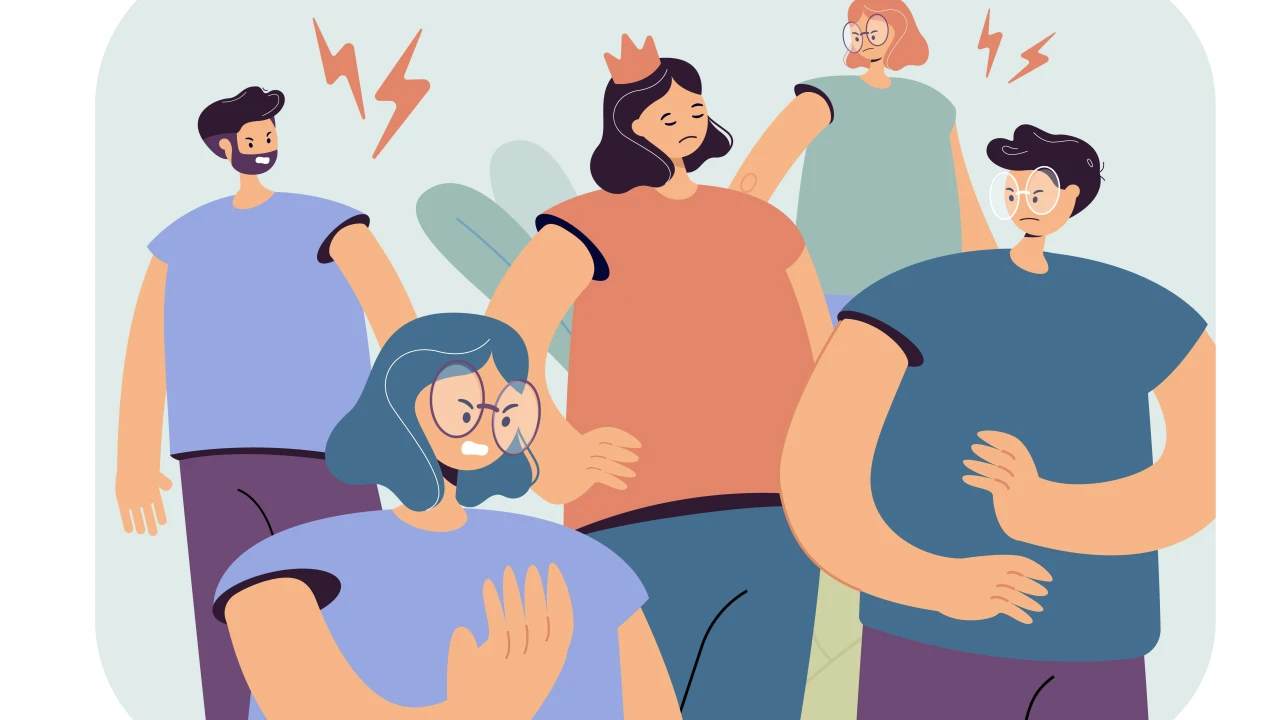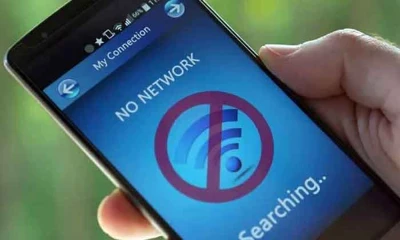It’s not that Sammy didn’t like Natalie at first. She was nice enough. It was only after Natalie started dating Sammy’s best guy friend and roommate, Dan, that things got tense. Sammy, Natalie, and Dan were part of the same grad school cohort when Natalie and Dan got together. Sammy, now 33, got the sense that Natalie and Dan were on different pages. Dan was a few years older and tended to pursue more casual romances; Natalie had never been in a relationship before. (All names in this story have been changed to allow people to discuss their friendships candidly.) Natalie and Dan were on-again, off-again for a few months, and when they were back on, Sammy noticed the normally social Dan would leave hangouts early at Natalie’s behest. When Natalie did come around their larger group of friends, she wouldn’t interact with anyone but Dan, Sammy says. Sammy was afraid she was losing one of her closest connections. Things came to a head after a Halloween party when Natalie erupted on Sammy. “She goes on this weird, 20-something girl tangent about ‘We're dating, deal with it,’” Sammy says. Dan overheard the entire exchange. After that, Sammy couldn’t hold her tongue anymore. She told Dan about how he’d changed after he started dating Natalie and how her behavior at the Halloween party was inappropriate. Dan took the conversation in stride, addressing Sammy’s concerns but not committing to ending things. They continued to date for another year and a half, but Dan no longer brought Natalie around his friends. The unspoken compromise, Sammy says, was Dan making time for their friendship while still dating Natalie. “I still feel good about the way I approached it,” Sammy says. “It was not like, ‘She's boring and dumb and sucks.’ But I was like, ‘I don't think you were the best version of yourself, and as your friend I want better for you.’ I painted it as not a personal attack, but rather I don't think that this relationship is serving you to the fullest.” Sammy and Dan now live in different cities but are still long-distance friends. It’s one of the most common and deeply felt friendship conundrums that we have very little control over who our closest confidantes date. Ideally, our pals would partner up with someone as wonderful as they are, but real duds can worm their way into the mix. As a friend, of course we want to support our bud’s romance, but what if we think they’re wasting their time with an overly opinionated blabbermouth? Or dating someone who isn’t a good fit? Worst of all, what if they’re with someone who’s just not a great person? It’s our responsibility to let our friends know when we think their romantic relationship is bringing them down. “It's my job as her friend,” says friendship coach Danielle Bayard Jackson, author of Fighting for Our Friendships: The Science and Art of Conflict and Connection in Women's Relationships, “to let her know why I feel this is not good for her from the vantage point of being a person in her life intimately familiar with who she is, what her goals are, what might be a good partner.” These discussions don’t need to be friendship-killers either. As with any difficult conversation, there are ways to express concerns so a friend can accept them (even if they don’t agree) rather than feel attacked. The goal for the conversation, Bayard Jackson says, is to tell your friend what you see, show them your support, and manage your expectations around how they react to that information. (If you believe your friend is in an abusive relationship, this advice will vary. More on that later.) When to share your concerns (and when to keep them to yourself) While it’s true that you owe it to a friend to tell them when something feels off about their relationship, there are limits to what counts as reasonable concerns. Only broach a conversation if the noxious partner in question (and their behavior) is impacting your friend, you, or your friendship, says therapist Israa Nasir. For example, maybe you notice that your friend’s significant other constantly criticizes them or puts them down. Or perhaps your friend confides in you about how their spouse dismisses their feelings every time they try to have a serious conversation. Think twice before commenting on aspects of someone’s personality “because for your friend, they might enjoy those parts of their partner,” says therapist Shade Adekunle. If you find your friend’s new boyfriend’s jokes incredibly annoying but inoffensive, you may need to figure out how to manage your irritation (or limit the amount of time you spend with him when he’s feeling full of jokes). If you do decide to discuss an issue about a friend’s partner, make sure you’ve actually spent some time with them, Adekunle says. It’s possible their significant other was nervous or shy the first time you met them; don’t let one interaction color your entire view of them. However, don’t let years pass where you amass a mental dossier of your friend’s fiancé's past infractions. “Giving that to somebody will make them feel defensive,” Adekunle says. Your friend might think, “You're just judging me. You've hated them all along and you just didn't say anything.” Comment on the behavior, not the person Once you’ve determined there’s something to be gained from voicing your concerns, be specific about what worries or upsets you. Simply saying “he’s annoying,” “she’s shady,” or “they’re untrustworthy” doesn’t explain how it impacts your friend or your friendship. You should also avoid giving your friend an ultimatum or asking them to choose between you and their partner. “That's just not your place,” Nasir says, “even as a friend.” Maybe you’ve noticed your friend shrink away because their significant other always has to be the center of attention. Make an observation rather than a judgment, Nasir says. Try saying, “I noticed that when you're with your partner, you tend to become very quiet.” Be honest about how the partner’s actions made you feel, Nasir suggests. You can also invite your friend into the conversation and ask them if they’ve clocked similar observations. Again, you might say, “I love how happy you are with Mark, but I’ve noticed he has a regular habit of interrupting everyone, even you. Is that something you’ve ever brought up with him before?” When her friends vent about their significant others, Julie sees an opening to gently push back. Instead of urging a friend to break up with their partner, Julie, 31, says something along the lines of, “That doesn’t sound like a great situation. Is this someone you want to continue to spend your time with?” The hope, Julie says, is “that they see themselves in the way that you see them. You're like, ‘I know you're not like this. I know you're not a person that goes in your shell. Or you seem upset a lot of the times that we talk about it.’ I'm hoping that they see this is not normal.” Be prepared for pushback Broaching your concerns with empathy and curiosity gives your friend space to confide in you about problems in their relationship. But regardless of your approach, they may also respond defensively — and you should be prepared. Your friend may feel judged or that their decisions are being questioned, Adekunle says. It’s not unreasonable to expect some unkind words from your friend, who may feel caught off guard. Give your friend some time to cool off and don’t take what they say too personally, Nasir says. Should a friend have a negative reaction, Bayard Jackson finds it helpful to say, “I totally get that. If things were reversed, I’d feel the same way. But I also have to be honest.” That way you’re acknowledging their feelings while not trying to force your friend to see things your way. Let them know you trust them when they say everything is peachy in their relationship and that you’re always open to talk if anything changes, Adekunle says. It’s also true that you’re only privy to so much of the dynamic in your friend’s relationship. “This is tough to swallow, but he offers her something that you don't and he offers her something that maybe you don't understand,” Bayard Jackson says. “They have moments that you're not a part of.” Set boundaries when you need to You probably won’t be able to completely avoid spending time with a friend’s partner, but you do have control over the duration and frequency of those hangouts. Be discerning when making and accepting plans, Bayard Jackson says. You might politely decline an invitation to join the two of them for dinner or suggest one-on-one hangouts, but you probably won’t be able to duck out of bigger events, like a birthday party. If you know you’ll be spending time with a friend’s partner who you don’t like, make a plan for how you’ll interact with them, Bayard Jackson suggests. Say hello and make small talk, but don’t spend more than a few minutes chatting. It’s better not to roll your eyes when they say something irritating. The goal is to continue to support your friend without undermining their relationship. Sometimes setting boundaries can grow into creating space. Andrew and Jacklyn were a few months into their friendship when Jacklyn started dating John. The romance was quickly intense, with Jacklyn discussing marriage after a few weeks. Andrew describes it as co-dependent. Andrew noticed Jacklyn would cancel plans at John’s behest. Throughout the entire relationship, Andrew questioned Jacklyn about John’s behaviors: “Why do you think he’s doing that?” or “How did that make you feel?” even “Why do you think you’re still in the relationship?” “I was like a broken record in what I was saying to her,” Andrew, 35, says. After less than a year, Jacklyn and John split. “She did say to me, ‘I appreciate you pointing out about John being this way and that way,’” Andrew says. But Andrew quickly found himself in a similar role when Jacklyn started dating another man Andrew saw as volatile. One night after a fight with her new boyfriend, Jacklyn was venting to Andrew. He tried to be validating, he says, but thought, “I can't be invested in this again.” So he started spending less time with Jacklyn. They’re no longer friends, he says. What to say when you really don’t have anything nice to say For people like Andrew who are constantly on the receiving end of their friend’s gripes about their partner, you do have permission to point out the pattern, Adekunle says. You could say, “The last few times we’ve hung out, I’ve noticed you bring up Alex a lot. What’s going on there?” Or if your friend is constantly rehashing the same issues — they complain about their spouse’s poor communication skills — you might ask them whether they’ve brought up their concerns with their partner. “We want to be honest with them,” Adekunle says, “and say, ‘Was there something about this that you contributed to in some way? Could that go differently? Could that be better?’” Keeping the conversation focused on your friend can also help you avoid saying anything negative about their significant other. Maybe your pal says they’re so excited for a comedy show their partner bought tickets to, but you think the comedian is lame and their seats are cheap. Express your genuine interest in your friend’s excitement: “I love that you guys are doing that!” or “I’ve never been to that venue before, let me know how it is.” Avoid any sarcasm or passive aggressive language. What to do if you suspect abuse If you believe your friend is experiencing physical or emotional abuse, you’ll need to take a different approach. According to Adekunle, signs of abuse include a change in your friend’s demeanor, marks on their body, low self-esteem, or if they disclose how their arguments with their partner have intensified or become physical. You’ll want to be more direct. Adekunle suggests saying, “I’ve known you for 10 years and over the last six months I’ve seen a big change. I love you and want to know what’s going on.” Should they deflect or brush off your concern, let them know you’re worried about them: “I hear that you're saying it's fine, but from my perspective, it's not looking that way. So can we try to talk about it?” Adekunle suggests. Once your friend feels comfortable opening up to you, try creating a larger support network if they’re comfortable. You might loop in another friend or a parent or sibling. This way you can collectively offer your friend resources and a plan to exit the relationship when they’re ready. “Maybe you talk about how could you let us know if things are escalating and you need help?” Adekunle says. “What would that look like?” Regardless of the relationship dynamic, the bottom line is you want to ensure your friend knows that you love and support them. You can’t control who your friends choose to be with, but you can control how you continue to show up for those you care about.


 Pakistan 18 hours ago
Pakistan 18 hours ago
 Pakistan 2 days ago
Pakistan 2 days ago
 Business 2 days ago
Business 2 days ago
 World 2 days ago
World 2 days ago
 Technology 1 day ago
Technology 1 day ago
 Pakistan 2 days ago
Pakistan 2 days ago
 Pakistan 1 day ago
Pakistan 1 day ago
 World 1 day ago
World 1 day ago































